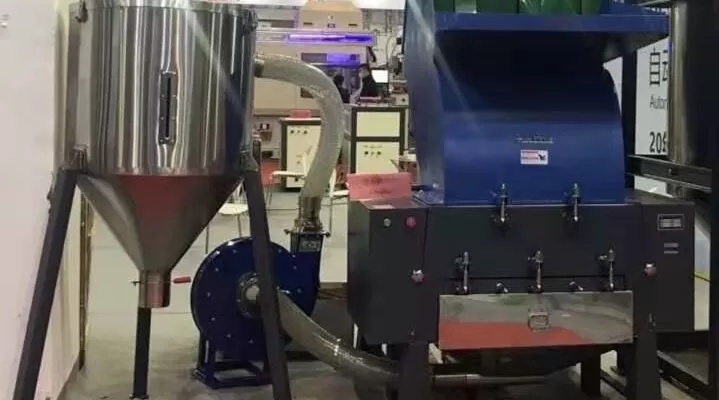In the bustling corridors of the global recycling industry, the question of how many plastic recycling plants exist in India often surfaces. As the CEO of Amige, a company at the forefront of manufacturing top-quality plastic crushers and shredders, I’ve navigated the complex landscape of plastic recycling both domestically and internationally. Our commitment to breakthrough technology and customizable solutions has placed us in a unique position to explore this topic deeply.

India, a country with a burgeoning population and a rising tide of consumerism, has seen a parallel increase in waste production, especially plastic waste. The necessity for efficient plastic recycling plants is more critical than ever. Reports suggest there are approximately 7,500 recycling plants across India, a figure that underscores the country’s commitment to tackling plastic waste.
The magnitude of plastic waste in India demands a robust recycling infrastructure. Our experiences with clients in Egypt, America, Mexico, and Ecuador have shown us the universal challenges and opportunities in the recycling industry. India’s approach is no less fascinating, offering insights into how emerging economies are addressing environmental challenges.
What Drives the Growth of Plastic Recycling Plants in India?
The drive towards establishing more plastic recycling plants in India is fueled by a combination of government initiatives and the burgeoning need for sustainable waste management practices. The Indian government has implemented several policies aimed at enhancing waste management and recycling capabilities.
Moreover, the public’s growing awareness of environmental issues has led to increased consumer demand for products made from recycled materials. This cultural shift is a critical driver behind the expansion of recycling facilities across the nation.
How Do These Plants Contribute to the Economy and Environment?
The contribution of plastic recycling plants to the Indian economy and environment is twofold. Economically, these facilities generate employment, foster industrial growth, and promote innovation in recycling technologies. Environmentally, they play a pivotal role in reducing landfill use, conserving resources, and lowering greenhouse gas emissions.
Our interactions with procurement officers like Wasi, who prioritize quality and competitive pricing, reflect a broader market trend. High-quality recycling processes can transform waste into valuable resources, creating a circular economy that benefits businesses and the environment alike.
What are the Challenges Facing Plastic Recycling Plants in India?
Despite the progress, plastic recycling plants in India face several challenges. These include the collection and segregation of plastic waste, technological limitations, and fluctuating market demand for recycled materials. Additionally, inefficient communication and logistical hurdles often impede the smooth operation of these facilities.
As a company, Amige has encountered similar challenges in our operations. We understand that overcoming these obstacles requires innovation, persistence, and collaboration across the supply chain.
How Can Technology and Innovation Propel the Recycling Industry Forward?
Technology and innovation hold the key to transforming the recycling industry in India. By adopting advanced recycling technologies, plants can improve the efficiency and quality of their output, making recycled materials more competitive in the global market. Our experience in developing customizable plastic crushers and shredders has shown us the potential of technology to address specific recycling needs.
Furthermore, innovative business models, such as extended producer responsibility (EPR) schemes, can incentivize manufacturers to recycle more and consumers to choose recycled products. Such initiatives can bridge the gap between economic viability and environmental sustainability.
What Role Do International Partnerships Play in Enhancing Recycling Capabilities?
International partnerships are instrumental in enhancing India’s recycling capabilities. Collaborations with foreign companies like ours provide access to advanced technologies, expertise, and global best practices. These partnerships can lead to improved recycling processes, higher-quality recycled materials, and more efficient supply chains.
At Amige, we’ve seen how our collaborations with companies across Egypt, America, Mexico, and Ecuador have led to mutual growth and learning. Such international cooperation is crucial for scaling the impact of recycling efforts worldwide.
Conclusion
Navigating the complexities of the plastic recycling industry in India reveals a landscape filled with challenges but also abundant opportunities. As the CEO of Amige, I am optimistic about the future of plastic recycling in India and globally. Our commitment to innovation, quality, and sustainability places us in a unique position to contribute to this vital industry’s growth and efficiency.
The journey towards a more sustainable future is a collective one, requiring the efforts of companies, governments, and individuals alike.
